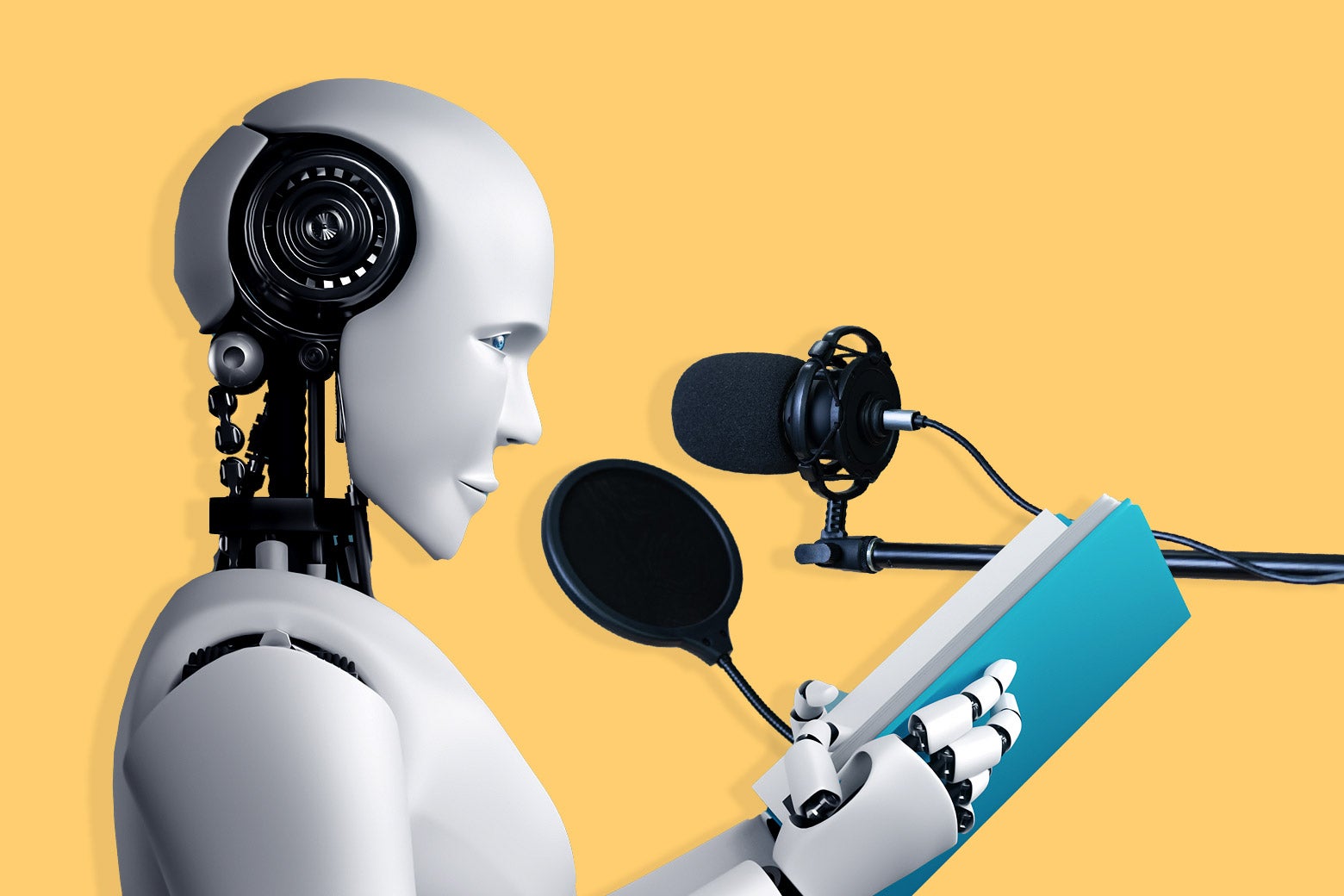
The first voice is a human narrator.
The next voice is generated by AI.
The difference sits in the pacing, warmth, and intention. That gap is now being filled by code, and thousands of narrators are watching their work disappear from the inside out.
Audiobook production has long been one of the most expensive steps in publishing. A fully produced audiobook can cost between $3,000 and $6,000 for a 10-hour title. This figure includes narrator fees, studio rentals, editing, mastering, and post-production. Narrators themselves typically charge $200 to $500 per finished hour, depending on experience, union status, and genre.
These costs discouraged many publishers from producing audio editions of older or less marketable books. Independent authors often had to crowdfund or rely on profit-sharing platforms to make audio viable. The voice acting industry saw increased demand but stagnant compensation, making narration a high-effort, low-margin service for many professionals.
In 2023, companies began exploring alternatives. Apple introduced digital narration with voices like “Madison” and “Jackson” through its Books platform. The goal was to help publishers get more books into audio, especially those without large budgets. Around the same time, Google rolled out an AI narration toolkit for its Play Books partners.
The shift accelerated when Audible launched its own AI narration tools in 2025. The company offered over 100 synthetic voices in multiple languages, along with self-service tools that let publishers turn manuscripts into audiobooks in under 24 hours. Production costs dropped by as much as 90 percent.
Fewer hours, lower fees, and no studios made AI narration a faster and cheaper solution.
What AI is replacing in production
The narrator is only one part of the audiobook production chain. A typical human-narrated audiobook also involves directors, sound engineers, editors, and quality control teams. Each role adds time and cost to the final product.
AI narration platforms now automate most of this chain. Editing is built into the pipeline. Text-to-speech models require no direction, and errors are corrected algorithmically. Publishers can generate a complete audiobook in minutes and only pay a fraction of the traditional cost.
This change also affects royalty structures. Human narrators typically receive a percentage of ongoing sales or a flat fee plus royalties, depending on contracts. AI voices do not receive royalties. The earnings loop has been closed entirely within the platform, allowing companies to retain all profits beyond licensing or platform fees.
The displacement extends to studios and freelancers. More than 60 percent of freelance audiobook editors experienced a drop in job opportunities after the adoption of synthetic narration tools.
Human voice vs AI voice
Many AI voices are designed to sound natural. Companies have trained models using thousands of hours of human speech. The results are functional and smooth for certain genres, particularly nonfiction.
However, side-by-side comparisons reveal consistent differences. Human narrators adapt tone, rhythm, and emotion to match character dialogue, suspense, or humor. AI models, while increasingly realistic, still rely on scripted prosody. They often lack the subtle pauses and inflection shifts that experienced narrators use.
A study found that listeners were more likely to report emotional engagement with human-read audiobooks. Seventy-two percent of participants could distinguish between AI and human narration after three minutes, especially in fiction genres.
Audio samples from Audible’s “Virtual Voice” program show the limits. AI narrators often misplace emphasis or deliver complex sentences in flat tones. In comparison, professional narrators like Bahni Turpin and Edoardo Ballerini have been credited by publishers for increasing listener retention and sales. Audiobook versions with award-winning narrators can outsell their print counterparts.
How platforms rolled out AI
The rollout of AI narration has followed a clear pattern. Companies began by offering AI tools to self-published authors who had little access to professional production. Google Play Books launched its AI narration beta in 2022. Apple Books followed in early 2023 with a limited selection of digitally narrated titles in romance and nonfiction.
These early experiments framed AI as an accessibility feature, aimed at underserved markets. The intent was to increase audiobook availability in smaller genres and languages.
Audible initially resisted. For years, it focused on high-quality human performances, building its brand on celebrity narrators and polished production. That changed in 2023 when Audible quietly piloted a “Virtual Voice” program with independent authors. By 2025, the company had integrated AI tools into its backend platform and offered publishers full control over voice selection, pacing, and delivery.
This gradual rollout allowed platforms to refine their models without triggering pushback from major unions or creators. The staggered approach helped avoid media scrutiny and labor resistance.
Audible’s new audiobook system
Audible’s current system offers both managed and self-service AI narration. In the managed version, publishers send manuscripts and select voices, while Audible handles production. In the self-service version, publishers use an online dashboard to generate audio in-house.
The company currently supports over 100 AI voices across English, French, Spanish, German, and Italian. The goal is to support global reach by combining narration with automatic translation tools.
This strategy effectively gives Audible control over the full audiobook pipeline: from manuscript ingestion to final distribution. This vertical integration means cost savings at every layer. Fewer contractors, more internal tools, and tighter margins create a business model optimized for scale.
Some narrators have entered into licensing agreements to create AI clones of their voices. These arrangements vary widely. Some receive flat fees, others retain limited rights. Transparency remains limited, and most licensing agreements are sealed under NDA.
What this means for narrators
The audiobook boom over the past decade created steady work for thousands of narrators. Audiobook sales in the U.S. reached $2 billion in 2023. Narration became a viable career path, especially in fiction and memoirs.
That ecosystem is now under pressure. With AI tools handling fast, inexpensive narration at scale, many publishers are reevaluating their budgets. Forty-four percent of small publishers planned to adopt AI narration within the next year.
Narrators are adapting. Some are exploring voice licensing. Others are focusing on genres where AI struggles, such as children’s books, poetry, or dialogue-heavy novels. Veteran narrators argue that human emotion, comic timing, and cultural nuance remain difficult to automate.
For many mid-tier and emerging voice actors, the shift feels like the end of stable work. A Reddit thread in r/audiobooks from February 2025 featured dozens of narrators discussing lost contracts and shrinking rates. The conversation reflects growing uncertainty about how long human voices will remain part of mainstream production.
The audiobook industry is changing fast. Platforms are using AI to reshape how books sound, how work is distributed, and who profits from every download. The voices that defined storytelling for years are now navigating a system that increasingly favors machines.





